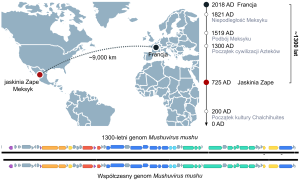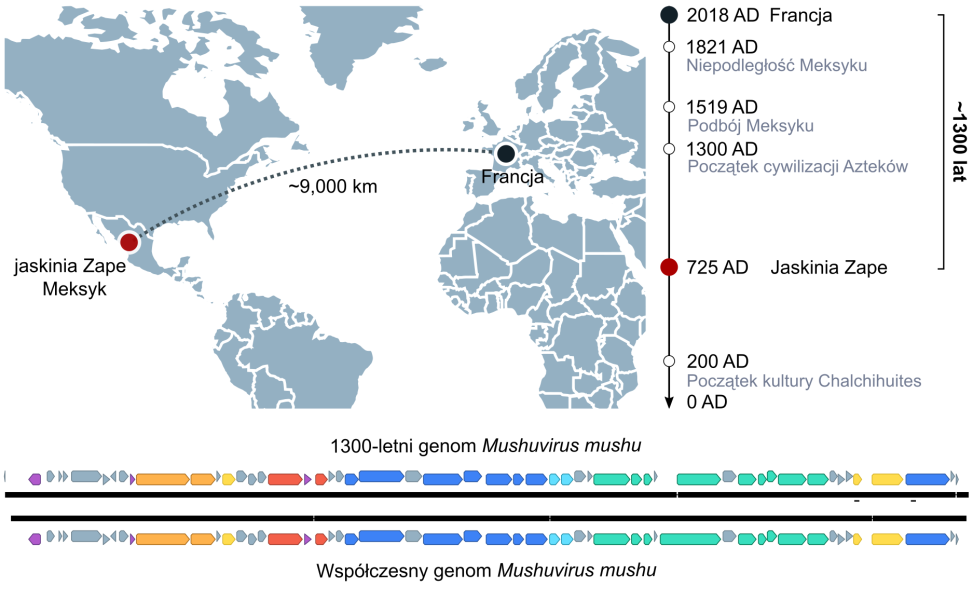Piotr Rozwalak, Jakub Barylski, Yasas Wijesekara, Bas E. Dutilh, Andrzej Zielezinski. Ultraconserved bacteriophage genome sequence identified in 1300-year-old human palaeofaeces. Nature communications 15(495) 2024.
Researchers from the Faculty of Biology of Adam Mickiewicz University reconstructed the DNA sequence of ancient bacteria-infecting viruses (bacteriophages) originating from the human gut. In fossilized human feces from over a thousand years ago and in the entrails of an ancient mummy, the authors identified well-preserved DNA of several hundred species of bacteriophages of that time.
The most surprising result was the detection of a virus that not only survived for 1,300 years in the human intestine, but also retained a DNA sequence almost identical to the modern virus. The DNA sequence of this ancient virus is almost 98% similar to the sequence of the modern Mushuvirus mushu virus, which infects anaerobic intestinal bacteria. Computer analyzes conducted by the authors showed that the ancient Mushuvirus mushu most likely infected bacteria from the Fecalibacterium prausnitzii species, which are beneficial to humans. The authors explain that the eternity of Mushuvirus mushu may result from cooperation with the bacterium - the virus could survive most of the time in a form integrated with the genetic material of the bacterium (this form is called a prophage), and the presence of the virus itself most likely brings benefits to both parties, while not exerting pressure to change for hundreds of years.
To sum up, the scientists' discovery sheds new light on the complex evolutionary history of bacteriophages, previously generally considered to be very rapidly evolving viruses, and contributes to a better understanding of the dynamics between viruses and bacteria.


